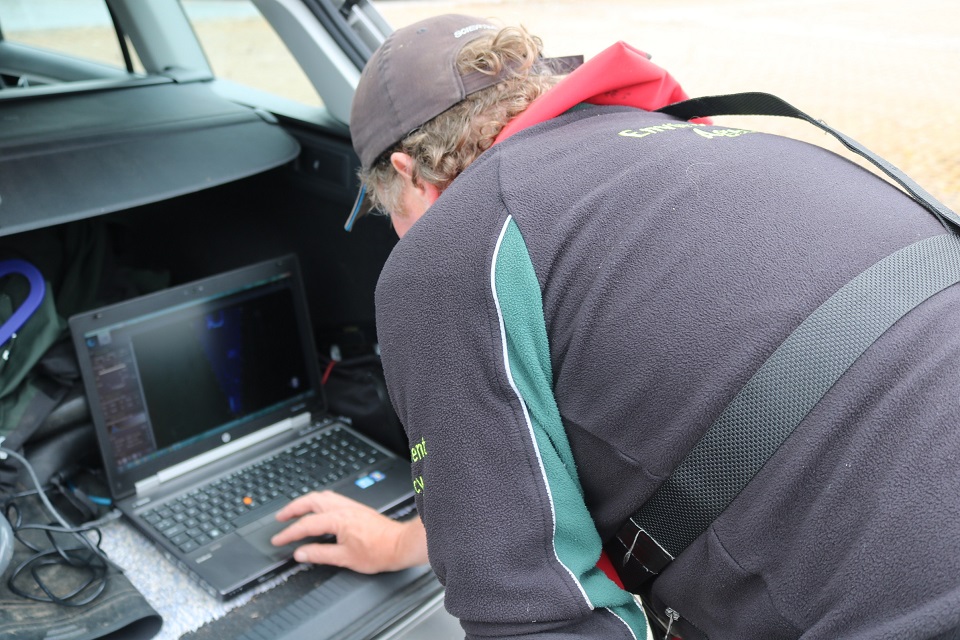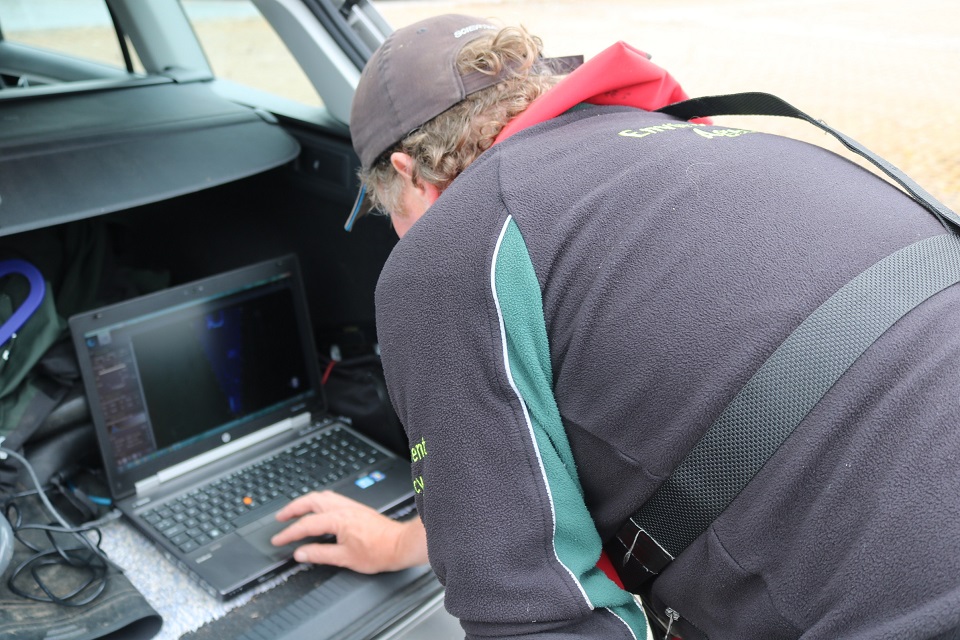Waste criminals act illegally to evade landfill tax, undercut responsible waste disposal businesses, operate illegal waste sites, export waste illegally and fly-tip – blighting communities with bad smells, fly infestations and fires.
Their activity cost the English economy more than £600 million in 2015 and the review announced by the Environment Secretary today is the next step in the government’s ongoing work to tackle the crime – which is already a serious offence with tough penalties.
A Call for Evidence launched today (10 June) will enable a wide group of people to have their say on ways to crack-down further on Organised Crime Groups (OCGs), who profit from waste crime.
The review will be chaired by Lizzie Noel, a Non-Executive Director at Defra.
Environment Secretary, Michael Gove, said:
Organised criminals running illegal waste dumps and fly-tipping are blighting local communities. They cost our economy vast amounts of money, pollute our environment and harm our wildlife.
We must crack-down on these criminals who have no regard for the impact they have on peoples’ lives. The time is right for us to look at how we can best tackle these antisocial and inexcusable crimes.
The review will:
- Consider the types of crimes being committed and organised crime groups involved;
- Consider the environmental, community and economic impacts of serious and organised waste crime;
- Consider how the Environment Agency, other organisations, and the law enforcement system can work together to tackle the threat;
- Make recommendations for a strategic approach to serious and organised waste crime.
Minister of State for Security and Economic Crime, Ben Wallace, said:
Organised crime groups exploit any opportunity to make money. Our local communities are being scarred by the illegal dumping of waste, while at the same time people are being conned into placing contracts with dodgy waste firms.
We are committed to ending this scourge and I look forward to exploring what more Defra, local authorities, the private sector and police can do on this issue.
More than 850 new illegal waste sites were discovered by the Environment Agency in 2016-17. While an average of two illegal waste sites are shut down every day, they continue to create severe problems for local communities and business, particularly in rural areas, as well as posing a risk to key national infrastructure.
A study by the Home Office suggests that criminals may also use waste management activities such as operating illegal waste sites as a cover for crimes such as theft, human trafficking, fraud, drugs supply, firearms supply and money laundering.
Review chair Lizzie Noel has more than 20 years’ experience of senior roles in both the private and public sectors. She will engage with a wide range of stakeholders, and the Call for Evidence will enable a wider group of people to have their say.
Lizzie Noel said:
The health of our communities, environment, and economy is being harmed by organised groups committing serious waste crimes.
This review is an opportunity to properly understand the extent of this criminal activity, and I look forward to working with a range of partners to ensure our response is robust and effective.
Since 2014, the Government has given the Environment Agency an extra £60million towards enforcement work to tackle waste crime. This extra investment has shown a return of about £5 for every £1 extra spent.
Today’s announcement builds on a range of new measures from the government to tackle waste crime, including new powers for the Environment Agency to lock the gates to problem waste sites to prevent waste illegally building up and powers to force operators to clear all the waste at problem sites, and extending landfill tax to include material disposed of at illegal waste sites with effect from April 2018.
Sir James Bevan, Chief Executive of the Environment Agency, said:
Last year, we closed down two illegal wastes sites a day and were granted new powers to complement our existing enforcement efforts. Our officers are also out in communities, preventing and disrupting criminals through our intelligence led investigations, and also dealing with the consequences of illegally dumped waste to the environment and the wider community.
We welcome the opportunity to review how best we deploy our resources and strengthen ties across government and with the police to target organised criminal rings behind illegal waste operations, and bring perpetrators to justice.
The Government has also recently given councils powers to hand out on-the-spot fines to fly-tippers, made it easier for vehicles suspected of being used for fly-tipping to be stopped, searched and seized, and later this year will introduce new fixed penalty notices for householders who pass their waste to a fly-tipper, subject to Parliamentary approval.
The review is due to be completed by September 2018.
- Serious organised crime is the planning, coordinating and committing serious offences, whether individually, in groups and/or as part of transnational networks
- Lizzie Noel will be supported by an advisory panel bringing a wide range of experience in serious organised crime, security, and waste. The panel comprises Julia Mulligan, Police and Crime Commissioner for North Yorkshire, Colin Church, Chief Executive Officer at Chartered Institute of Waste Management, and Craig Naylor, Deputy Chief Constable in Lincolnshire Police.
- Householders can check if a waste carrier is an approved carrier on the Environment Agency website.
- The cost of waste crime to the English economy being over £600m in 2015 is from Rethinking waste crime, Environmental Services Association Educational Trust, 2017.
- The figure of the extra investment in the EA having shown a return of about £5 for every £1 extra spent on tackling waste crime is from Waste crime interventions and evaluation project report.
- The Home Office study referred to is Understanding organised crime: estimating the scale and the social and economic costs, October 2013.
- For further information please contact Defra press office on 020 8225 7317 or out of hours on 0345 051 8486
Terms of Reference
- The Serious and Organised Waste Crime review is initiated by, and will report to, the Secretary of State for Environment, Food and Rural Affairs.
Purpose
- To consider, in depth, serious and organised waste crime – including our response to it – so that we can make actionable recommendations for a strategic approach to waste crime.
- This review will directly inform a strategic approach to waste crime, which will be published in the new resources and waste strategy. This strategy is part of the Government’s environmental policy following the 25-year plan and the Clean Growth strategy. The review will also help shape future direction of work in this area.
Objectives
The review will:
- consider the extent and nature of crimes being committed, and the types of organised crime groups involved
- consider the environmental, community and economic impacts of serious and organised waste crime
- consider how the Environment Agency is responding to the threat
- consider the ability of the Environment Agency, other organisations, and the law enforcement system as a whole, to work together to tackle the threat
- make recommendations for a strategic approach to serious and organised waste crime
- make recommendations for the future direction of work
In implementing the review, the review team should also take account of:
- the enforcement landscape and the multiple organisations involved
- the sustainability, scalability, deliverability and cost-benefit trade-offs of responses to serious and organised waste crime
- wider work underway in Defra, the Home Office and the Environment Agency
- lessons learnt and examples of best practice from a wide range of stakeholders
Scope
- The review will take a broad approach, to understand the scale, nature and impact of serious and organised crime and current and potential response to it. The focus will be on England only.
- The review will concentrate on organised criminal involvement in waste crime, characteristics of criminal enterprises, intelligence gathering and enforcement effectiveness. It will consider fly-tipping and smaller waste crime incidents only in connection to the review’s understanding of organised criminality.
Roles and responsibilities
- The review will be chaired by Defra Non-Executive Director Lizzie Noel. The review will report to the Defra Secretary of State and Parliamentary Under-Secretary of State.
Ways of working
- The Chair will be responsible for overseeing the strategic direction and progress of the review and delivery of the final report. The Chair will work closely with the Head of Waste and Recycling, who will oversee the review within Defra. Progress reviews will be conducted monthly.
- The Chair, with advice taken from the core working group, may seek to access wider expertise dependent on need.
- The review will be supported by a Secretariat within Defra, and by staff within Defra and the Environment Agency throughout.
- A communications strategy and stakeholder engagement plan will be developed. All communication with the media will be undertaken through Defra Communications Team or the Environment Agency Communications team.
Timing
- The review will commence in June 2018 and is due to be completed by September 2018.
Reporting
- An evidence-based report will be submitted to Defra Ministers for consideration, detailing the findings of the review.


